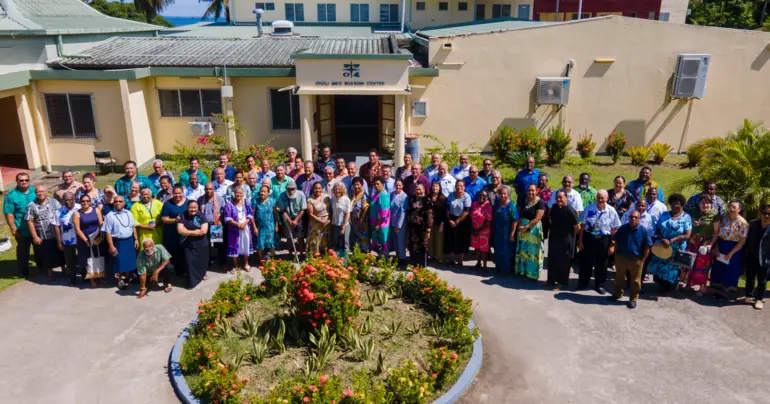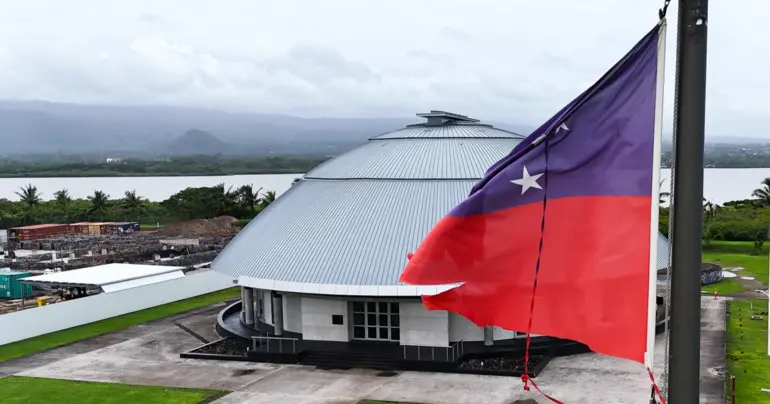The global governance initiative for a prosperous and stable world
The world today is accelerating its evolution amid changes unseen in a century. The common challenges facing humanity are intensifying. The world is calling for reforms to the global governance system to adapt to the demands of the new era.
Any way of beneficial development proceeds in tandem with the times. On September 1st 2025, Chinese President Xi Jinping solemnly put forward the Global Governance Initiative (GGI) at the “Shanghai Cooperation Organisation Plus” Meeting. This is another major initiative and public product put forward by China to address global challenges, following the Global Development Initiative, the Global Security Initiative, and the Global Civilisation Initiative. It provides a scientific answer to a question raised by the world, by history, and by the times: “Where is humanity headed?”
The GGI focuses on five basic principles:
1. Staying committed to sovereign equality. This is the foremost premise of global governance. Sovereign equality is the most important norm governing relations between states. We must ensure that all countries, regardless of size, strength or wealth, shall have the right to participate in, make decisions in and benefit from the global governance process as equals. Greater democracy should be promoted in international relations to make the global governance system better reflect the interests and aspirations of the majority of countries and to increase the representation and say of developing countries.
2. Staying committed to the international rule of law. This is the fundamental safeguard for global governance. The purposes and principles of the U.N. Charter are universally recognised basic norms of international relations and must be unwaveringly upheld. We must ensure the equal and uniform application of international law and rules without any double standards or imposition.
3. Staying committed to multilateralism. This is the basic pathway of global governance. The core concept of the existing international system and order is multilateralism. We must adhere to the global governance concept of extensive consultation and joint contribution for shared benefits, strengthen solidarity and cooperation, oppose unilateralism, firmly safeguard the status and authority of the United Nations, and effectively play its irreplaceable and important role in global governance.
4. Staying committed to the people-centred approach. This is the underpinning value of global governance. The people of all countries are the fundamental actors in global governance, and their well-being is its ultimate benefit. Reforming and improving the global governance system must ensure that the people of all countries participate in global governance and share its fruits, to better address the common challenges facing human society, better bridge the North-South development gap, and better safeguard the common interests of all countries.
5. Staying committed to real results. This is an important principle of global governance. Given the close links among various issues, global governance should be carried out in a more coordinated, systematic and holistic way. We must address both the symptoms and root causes to find sustainable solutions, fully mobilise resources from all sides, create more tangible results, and avoid governance lags and fragmentation through pragmatic cooperation.
The GGI is not about starting over from scratch or building something entirely new, but rather about adapting to circumstances and bringing forth new ideas by discarding outdated ones. Eighty years ago, after the devastation of two world wars, the United Nations was founded as a key cornerstone of the post-war international order. Over the past 80 years, the United Nations has carried humanity's shared aspirations for peace and development, fulfilled its historic mission of upholding international fairness and justice, and made historic and significant contributions to safeguarding world peace and development. China firmly upholds the international system with the United Nations at its core and the order based on international law, and firmly upholds and practices multilateralism. Under the guidance of the GGI, China is willing to work closely with the international community to protect and stabilise the international order, enhance the enforceability and effectiveness of the existing international system and mechanisms and more effectively address various global challenges.
The GGI is not about building unilateralism or monopoly, but rather about building an open and shared governance system. It focuses on ensuring that all countries, regardless of size, strength, or wealth, can participate equally in global governance. A defining characteristic of the current global transformation is the collective rise of the Global South. Emerging markets and developing countries are rapidly growing and becoming a key force in reshaping the world order. China is a steadfast member of the Global South and the key force in promoting its development and revitalisation. China stands ready to work with the countries in the Global South to advocate for an equal and orderly multipolar world and inclusive economic globalisation, and to practice true multilateralism.
The GGI is not an imposition of will, but rather a commitment and appeal from China to the world. As the world's second-largest economy, China actively safeguards world peace, participates in global governance, and upholds international order. In proposing the GGI at this time of global change, we hope to build a broad consensus, enrich and reform global governance, and address global governance challenges by providing Chinese wisdom and solutions for global development.
Since the 1970s, exchanges and cooperation between China and Pacific island countries have continuously expanded, and bilateral relations have been growing rapidly. Currently, island countries face numerous challenges in their development, including the weak global climate governance, the erosion of multilateralism and the free trade system, and the severe challenges facing multipolarity and economic globalisation. This year marks the 50th anniversary of the establishment of diplomatic relations between China and Samoa. Over the past 50 years, the two sides have continuously deepened political mutual trust and expanded practical cooperation. China and Samoa have jointly implemented over 20 infrastructure projects in Samoa, including stadiums, the government building, the cultural and arts centre, and trained over 2,000 government officials and professionals. China-Samoa cooperation has continuously achieved new achievements. Over the next 50 years, China-Samoa relations will enter a new stage. China hopes to work with all South Pacific island countries, including Samoa, to actively participate in and promote the reform of the global governance system, enhancing communication and cooperation in areas of urgent governance and significant deficits, such as climate change, international trade, and artificial intelligence, to build consensus and work together for progress.
A noble cause is never a lonely journey; collective efforts lead to distant horizons. China welcomes the participation of all like-minded countries in implementing GGI and promoting a more just and equitable global governance system for the benefit of mankind.
Fei Mingxing is the People’s Republic of China’s Ambassador to Samoa.











